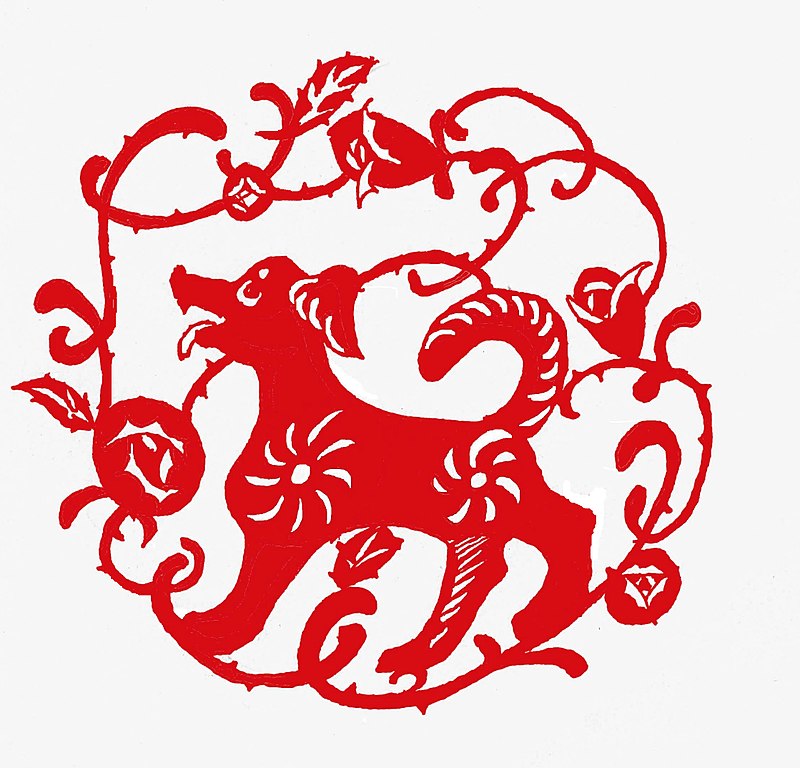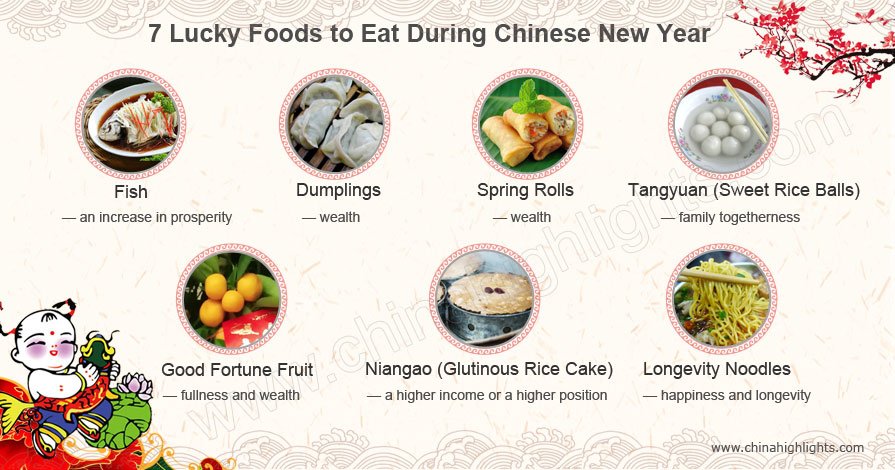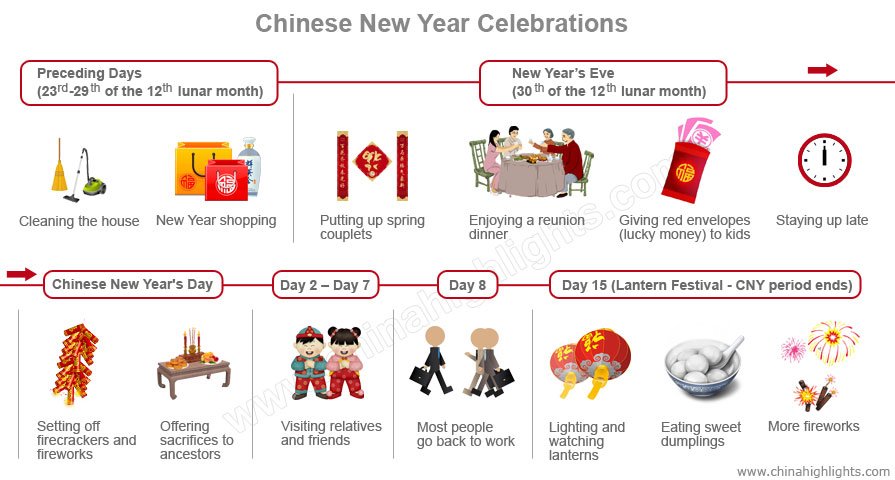
The joyous and colorful 2018 Chinese New Year celebrations will commence on February 16. Also known as Lunar New Year, or Spring Festival, the fifteen-day event, which will end with the Lantern Festival on March 2, is the longest and most anticipated of all of China’s festivals. Associated with customs meant to ensure auspicious beginnings, it is also observed in Malaysia, Singapore, Taiwan, and Vietnam.
Before the festivities begin, homes and businesses undergo rigorous cleaning to sweep away bad luck and make room for good fortune. The fun kicks off with fireworks and a family reunion dinner on New Year’s Eve. Since red is believed to promote good luck and ward away evil spirits, it is the chosen color for everything, from clothing to the lanterns that decorate homes and streets. For children, the Spring Festival means more than a break from school and enjoying fireworks and traditional lion dances: they also receive red envelopes of “lucky money” from elders.

As with all festivals, food plays an integral part and the carefully selected menu items are as tasty as they are symbolic. Delicious dumplings are assembled to look like Chinese silver ingots and represent wealth, while sweet rice balls, which are very popular during the Lantern Festival, represent togetherness. Long, uncut noodles symbolize longevity, and those wishing for prosperity may choose to eat fish. While wealthier families will prepare eight or nine dishes, representing success or infinity, respectively, don’t expect to find a meal with four food items. In Cantonese, the number “four” sounds like the word for death and is avoided.

With schools and universities closed for an entire month, and most workers off for at least a week, the holiday also results in the Earth’s biggest human migration. Experts estimate that Chinese residents will take over 3 billion trips via public transportation during the Chunyun travel period that goes on from February 1 until March 12. The festival is also one of the most profitable periods of the year for local businesses. In 2017, Chinese residents spent over $47 billion (213.1 billion yuan) during the New Year week.
Every Chinese year is characterized by one of twelve animals that make up the Chinese Zodiac, as well as one of five elements: metal, water, wood, fire or earth. The sign and element are believed to affect the fate of individuals born in that year, as well as the world in general. 2018, the eleventh in the twelve-year zodiac cycle, is the “Year of the Earth Dog” and includes those born in 1934, 1946, 1958, 1970, 1982, 1994, 2006, and anyone born after February 16, 2018. People governed by this animal and element sign have many good qualities; they are independent, responsible, loyal, and communicative. However, they are also known to be sensitive, stubborn, and emotional.

Chinese astrologers predict that 2018 will be a positive year financially for both — individuals affected by the zodiac sign and people in general. However, they caution that health may be an issue and recommend everyone to eat better, exercise, and abandon all bad habits.
Xin Nian Kuai Le! (Happy New Year!)
Resources: thesun.co.uk,telegraph.co.uk,chinahighlights.com,independent.co.uk, wikipedia.org
